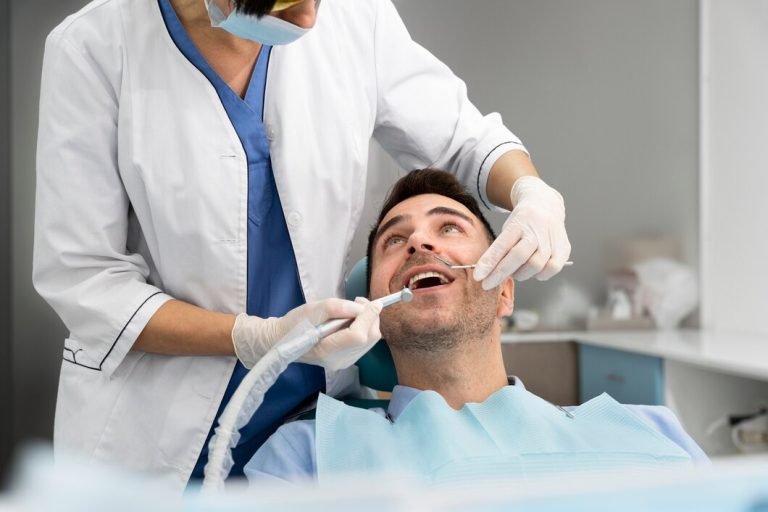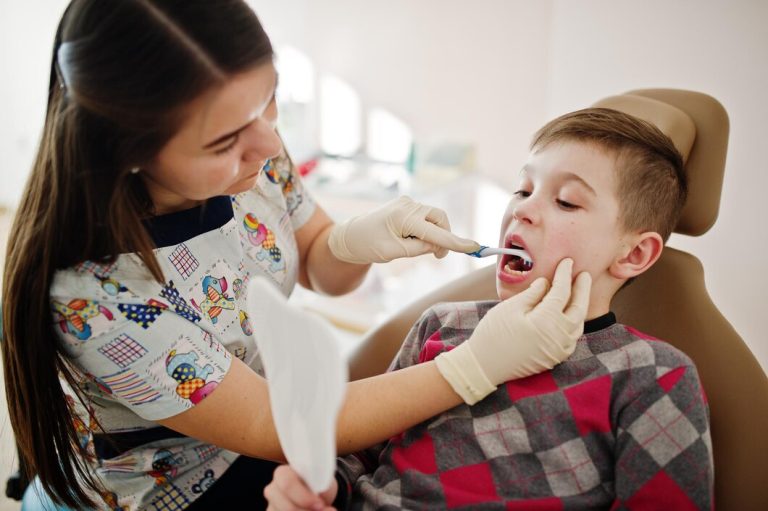Bleeding gums can be a concerning issue that many people experience. Understanding what causes this problem and knowing how to prevent it can help keep our gums healthy. When our gums bleed, it might be a sign of an underlying issue that needs attention. This can range from simple problems, like brushing too hard, to more serious conditions, such as gum disease.
Taking care of our gums is just as important as taking care of our teeth. Healthy gums support our teeth and protect them from harmful bacteria. When gums bleed, it can be uncomfortable and worrying. It’s essential to identify the cause and take the right steps to stop the bleeding and improve gum health.
In this article, we will cover some common causes of bleeding gums and share tips on how to prevent this issue. We will also discuss when it’s important to see a dentist and explore some effective home remedies that can help treat bleeding gums. By taking these steps, we can ensure our gums stay healthy and strong, contributing to a confident and beautiful smile.
Common Causes of Bleeding Gums
There are several reasons why gums might bleed. One of the most common causes is gingivitis, which is an early stage of gum disease. Gingivitis occurs when plaque builds up along the gum line, causing irritation and inflammation. If not treated, it can lead to more serious problems like periodontitis.
Another reason for bleeding gums can be brushing too hard or using a toothbrush with hard bristles. Aggressive brushing can damage the delicate gum tissue, making it bleed. Switching to a soft-bristled toothbrush and using gentle circular motions can help avoid this issue.
Poor dental hygiene is also a leading cause of bleeding gums. Not brushing and flossing regularly allows plaque and bacteria to accumulate, resulting in gum inflammation. Additionally, smoking and tobacco use can make gums more prone to bleeding due to the harmful substances in tobacco that affect gum health.
Certain medical conditions such as diabetes and blood clotting disorders can also lead to bleeding gums. Some medications, like blood thinners, might increase the likelihood of gum bleeding as well. Understanding these common causes helps in taking the right steps to prevent and treat bleeding gums effectively.
How to Prevent Bleeding Gums
Preventing bleeding gums starts with maintaining good oral hygiene. Brushing our teeth at least twice a day with a soft-bristled toothbrush helps remove plaque and prevent gum inflammation. It’s important to use gentle brushing techniques to avoid hurting the gums. Flossing daily removes food particles and plaque from between the teeth, where a toothbrush can’t reach.
Using an antibacterial mouthwash can also help reduce plaque and keep our gums healthy. Mouthwash reaches places that brushing and flossing might miss, giving our gums an extra layer of protection. An alcohol-free mouthwash is a good option, as it’s gentler on the gums.
Eating a balanced diet that’s rich in vitamins and minerals supports gum health as well. Foods high in vitamin C and calcium are particularly beneficial for our gums. Drinking plenty of water throughout the day helps keep our mouth clean and washes away any food particles that might be stuck.
Regular dental check-ups are crucial in preventing bleeding gums. Seeing a dentist at least twice a year allows for professional cleaning and early detection of any gum problems. By following these simple steps, we can keep our gums healthy and prevent them from bleeding.
When to See a Dentist for Bleeding Gums
Sometimes bleeding gums are a sign that it’s time to see a dentist. If you notice your gums are bleeding regularly, despite maintaining good oral hygiene, it’s important to get them checked. Persistent bleeding can indicate underlying issues like gum disease, which needs professional treatment.
If your gums are swollen, red, or if they hurt, these are also signals to make a dental appointment. Healthy gums should be pink and firm, so any changes in their appearance or how they feel can be a cause for concern. A dentist can diagnose the problem and recommend the right treatment to restore your gum health.
Additionally, if you have other symptoms like bad breath, loose teeth, or a receding gum line, it’s crucial to see a dentist. These signs can indicate advanced gum disease, which can affect your overall oral health. By addressing these issues promptly, we can prevent more serious complications and keep our gums healthy.
Effective Home Remedies for Bleeding Gums
There are several home remedies that can help soothe and treat bleeding gums. One effective remedy is rinsing your mouth with warm salt water. Salt has natural antibacterial properties that can reduce inflammation and kill bacteria. Mix half a teaspoon of salt in a glass of warm water and rinse your mouth for about 30 seconds, then spit it out.
Applying a cold compress to the outside of your mouth can also help reduce swelling and bleeding. Hold the compress against the affected area for a few minutes to relieve discomfort and slow bleeding.
Using natural remedies like aloe vera gel can soothe inflamed gums. Aloe vera has anti-inflammatory and antibacterial qualities that promote healing. Apply a small amount of pure aloe vera gel to your gums and massage gently. Let it sit for a few minutes before rinsing your mouth with water.
Another helpful remedy is oil pulling with coconut oil. Swishing a tablespoon of coconut oil in your mouth for 15-20 minutes can remove bacteria and improve gum health. Be sure to spit the oil into a trash can and rinse your mouth with warm water afterward. These simple remedies can support gum health and reduce bleeding.
Conclusion
Taking care of our gums is crucial for maintaining a healthy mouth and overall well-being. Bleeding gums can be a sign of various issues, from gingivitis to more serious conditions like periodontitis. By understanding the common causes of bleeding gums and incorporating preventive measures into our daily routine, we can keep our gums healthy and strong.
Regular dental visits are essential for catching any issues early and receiving professional care. If you notice persistent bleeding or other symptoms, don’t hesitate to make an appointment with your dentist. Simple home remedies can also provide relief and promote healing, making it easier to maintain good gum health.
If you’re experiencing persistent bleeding gums or other gum-related issues, contact Colorado Gum Care Northglenn, CO, for professional advice and treatment. Our dentist in Westminster, CO, is here to help you achieve healthy gums and a confident smile. Schedule your appointment today!







